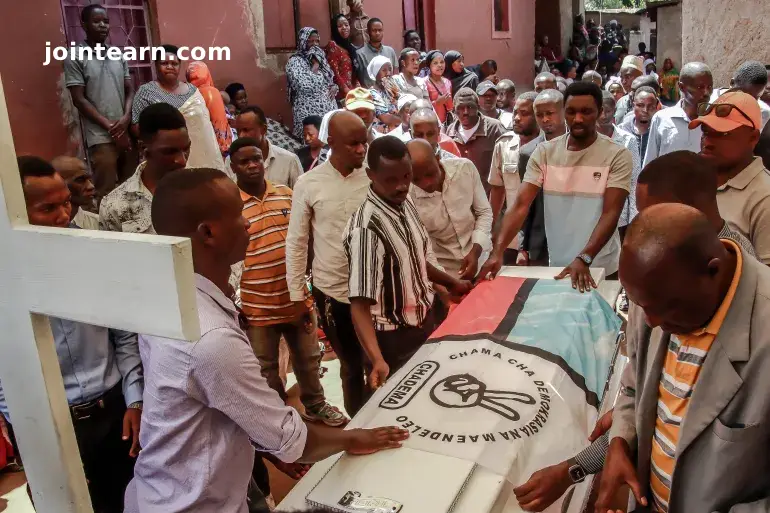
Tanzania is facing a growing political and human rights crisis as prosecutors have charged dozens of individuals with treason in the aftermath of violent protests following the country’s disputed presidential election. The crackdown comes amid claims of widespread election irregularities, excessive use of force by security forces, and deepening political tensions.
Dozens Charged with Treason Amid Post-Election Unrest
According to reports from the Associated Press, at least 76 people were accused of attempting to obstruct the October 29 election, while Reuters cites court documents indicating that 145 individuals now face treason charges. In addition to treason, several suspects have been accused of criminal conspiracy linked to the protests.
Authorities singled out a businesswoman for allegedly encouraging protesters to purchase tear-gas masks from her company during demonstrations. Beyond this, the charges against most suspects remain broad and politically charged.
Deadly Protests and Human Rights Concerns
The post-election protests have been marked by widespread violence. Human rights activists and Tanzania’s main opposition party, Chadema, claim that security forces killed over 1,000 people during demonstrations, a figure the government has yet to confirm or dispute. Witness accounts describe bodies left in the streets and civilians being targeted in their homes.
Religious leaders and civil society organizations have called for national reconciliation and urged the government to avoid further escalation. Bishop Benson Bagonza of the Evangelical Lutheran Church in Tanzania warned that treason charges could exacerbate political tensions rather than restore peace:
“The only option for the government to keep at least the relative peace now is … to grieve with the people instead of arresting and taking people to court.”
The Legal and Human Rights Centre (LHRC), together with six NGOs, condemned the “excessive use of force against unarmed demonstrators, including reprisal killings of civilians,” highlighting the trauma experienced by families and children who witnessed violence.
Controversial Election Results
President Samia Suluhu Hassan, who was sworn in on Monday following the elections, reportedly won nearly 98% of the vote. However, the African Union (AU) criticized the election for failing to meet democratic standards. The AU cited ballot stuffing, an internet blackout, excessive military force, and politically motivated abductions as key violations undermining the integrity of the vote.
Two leading opposition candidates were barred from participating, including Chadema leader Tundu Lissu, who remains imprisoned on treason charges dating back to April. These exclusions, along with allegations of widespread electoral manipulation, have intensified domestic and international scrutiny of Hassan’s administration.
Eyewitness Accounts of Violence
In the northern Mwanza region, hundreds of protesters were reportedly killed. Chadema party secretary Amos Ntobi described scenes of extreme violence:
“We saw people being shot in broad daylight. There were bodies all over the streets — some people were killed instantly, others left badly wounded.”
The violence has sparked outrage from human rights organizations, calling attention to reprisal killings, mass detentions, and ongoing abuses that remain under-investigated.
Political and Social Implications
President Hassan, who assumed office after the unexpected death of her predecessor John Magufuli in 2021, now faces mounting criticism over her administration’s heavy-handed approach to political dissent. Analysts warn that pursuing treason charges against protesters could deepen national divisions, fuel unrest, and further erode public trust in Tanzania’s democratic institutions.
Religious leaders, opposition politicians, and international observers continue to press the government for dialogue and reconciliation, emphasizing that national stability requires addressing grievances rather than relying solely on punitive measures.
Key Takeaways
- Dozens of Tanzanians face treason and conspiracy charges after protests following the October 29 election.
- Human rights organizations allege over 1,000 deaths during the unrest, while the government has not released an official toll.
- The African Union criticized the election for failing to meet democratic standards, citing ballot stuffing and political exclusions.
- Opposition leaders and civil society call for reconciliation instead of further arrests.
- President Samia Suluhu Hassan’s government is under scrutiny for crackdowns on dissent and alleged human rights violations.


Leave a Reply